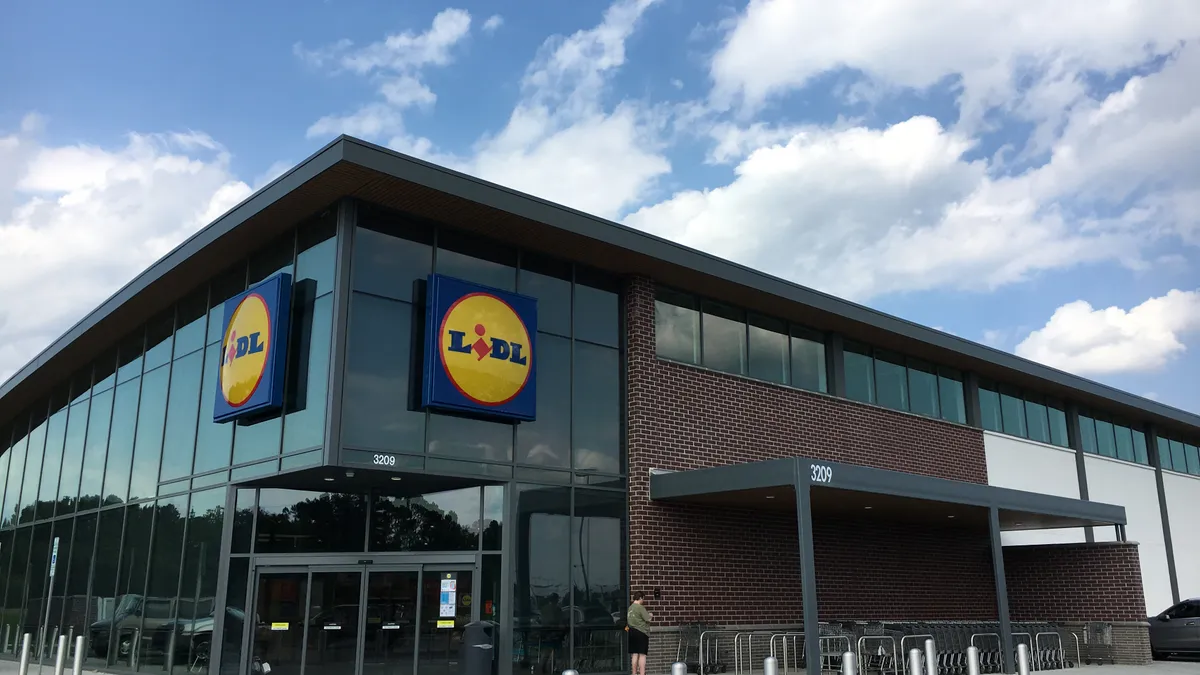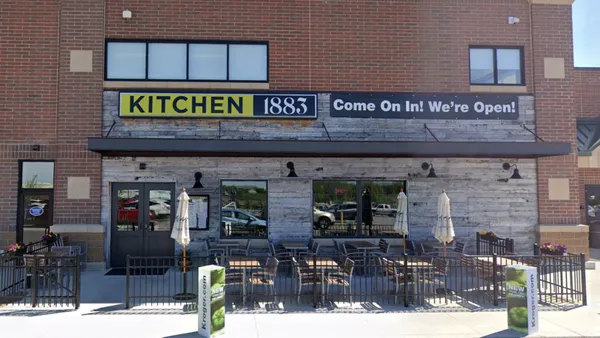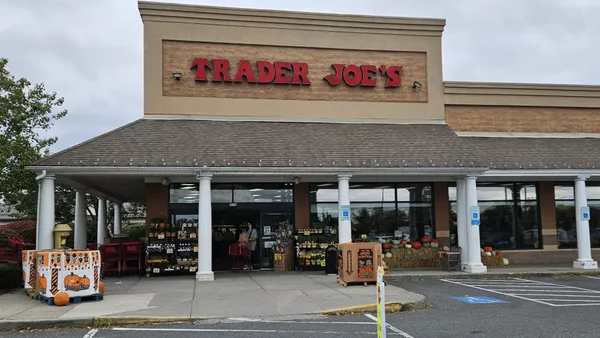Dive Brief:
- In response to a report published last week in the Tampa Bay Business Journal about Lidl looking for real estate in the Florida market, a company spokesperson told Progressive Grocer that is not the case: “We are not currently scouting sites in Florida.”
- Virginia-based Lidl currently operates stores in Delaware, Georgia, New Jersey, North Carolina, South Carolina and Virginia. The retailer has imminent plans to open in Washington, DC, and Maryland. The company spokesperson said the company’s focus is on the "Mid-Atlantic East Coast."
- Lidl, which made its U.S. debut in June 2017, initially had plans to open 100 stores in its first year, but fell short of that goal by about 50%.
Dive Insight:
As competition in the grocery space continues to intensify, perhaps the most interesting market case study is Florida. In 2017, grocery square footage jumped 6% in the state, while the rest of the country experienced a dip of nearly 29% in store openings. Florida has become so inundated that even grocery giant Kroger won’t plant its flag there.
The consumer base driving Florida’s competition may also be a deterrent for deep-discounting Lidl. Specialty concepts such as Lucky’s Market, Sprouts Farmers Market and Earth Fare are thriving in the Sunshine State as organic food sales grow by nearly 10%.
Such competition may be a turnoff for Lidl as it continues to find its footing in the U.S. There are plenty of other markets to pursue that could provide a better chance, and Lidl seems to be doing just that, having generated 2.6% of market share in nine markets in its first five months.
That’s not to say Lidl doesn’t have work to do. The company fell significantly short of its 100-store plan for year one, and experienced issues such as inconsistent merchandising mixes and stores that felt “overbuilt.” But those problems were early on. More recently, the company seems to be finding a better cadence. According to Daymon’s Private Brand Intelligence Report, 63% of consumers say Lidl’s expansion into the U.S. has exceeded expectations. Daymon also noted that Lidl has been able to learn from mistakes in the past and revamp.
Indeed, a new study from Oliver Wyman found that Lidl is resonating and building loyalty among shoppers. Those shoppers indicated that they are satisfied with the store’s offerings, merchandise quality and price, and they are spending more with the brand.
Perhaps this is why Lidl plans to accelerate its store openings this month behind the leadership of new president and CEO Johannes Fieber. But with Lidl’s rocky start and up and down performance since, it may be wise for the company to stay conservative in certain markets until it’s able to exhibit sustained consistency and win over more consumers.












